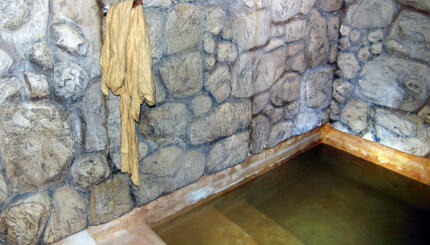While withdrawl from the Golan is often dismissed as unthinkable, governments of Rabin, Peres, Netanyahu (first term), Barak, and Olmert all made efforts to achieve an agreement “based, at the very least, on an extensive withdrawal from the Golan.” Moreover: “after the Six-Day War Levi Eshkol’s government decided to propose peace with Syria (and Egypt) on the basis of a withdrawal to the international borders, demilitarization of the Golan and a guarantee that the waters of the Jordan would flow into Israel.” (Ha’aretz)
Two Israeli journalists have put out a book about the 2005 Lebanon war, and the reviewer notes that the authors “are best at describing the infighting among the military commanders up and down the line.” (Jerusalem Post)
Jonathan Spyer reports that the Lebanese army, instead of making sure Hezbollah complies with the UN resolution, is actually functioning as a supporter of Hezbollah. (Jerusalem Post)
Israel is being asked to withdraw entirely from Ghajar to the Blue Line, but complicating this is the question of whether Ghajar is in Lebanon, Syria, or split between the two. (Ha’aretz)
July marked the 60th anniversary of the signing of the armistice agreement between Israel and Syria, and the question remains still whether, for example, Ben Gurion should have accepted a Syrian deal, and whether there should have been more specific agreements at that time. (Ha’aretz)


